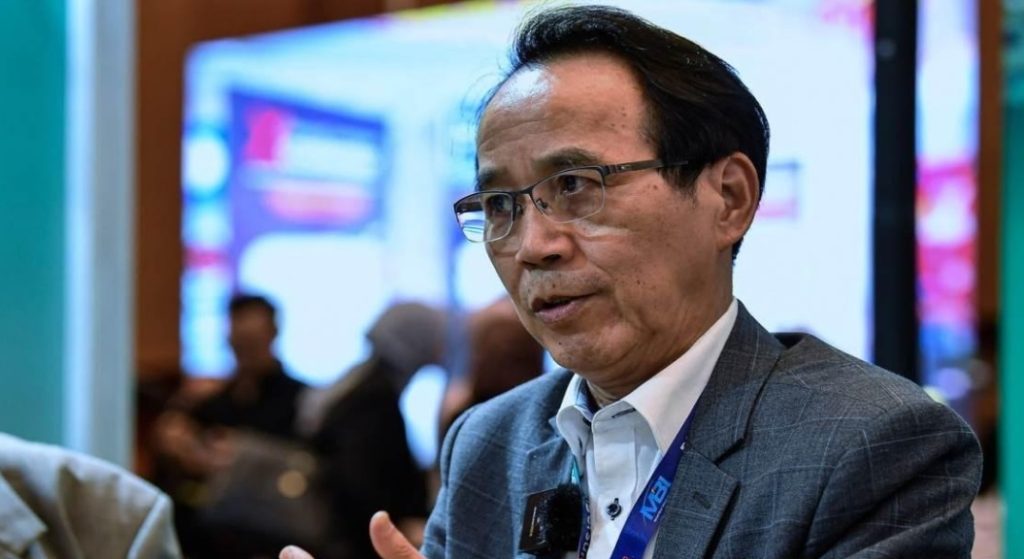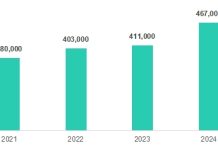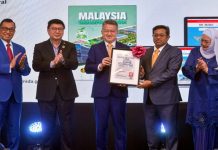![]()
The semiconductor industry in Malaysia is set to further solidify with various commendable initiatives outlined under Budget 2025, including the Supply Chain Resilience Initiative and the New Investment Incentive Framework.
On this, Malaysia Semiconductor Industry Association (MSIA) director, Andrew Chan said that the budget has a stronger focus on developing talent in the electrical and electronics (E&E) sector.
“These efforts aim to bolster the country’s competitiveness in the semiconductor sector and the measures outlined in the budget lay a solid foundation for long-term growth and resilience within the industry,” he said.
The expansionary Budget 2025 also involved the introduction of the New Investment Incentive Framework, including a strategic fund worth RM1 billion aimed at enhancing the capacity of local talent and encouraging high value activities to be carried out in the country.
This framework, which focuses on high value activities as opposed to existing incentives based on specific products, is expected to implement in the third quarter of next year (3Q25).
To enhance the diversification of the E&E sector through high-value-added activities, such as integrated circuit (IC) design services and advanced materials, the government has agreed to expand the tax incentives to boost exports to include IC design activities.
In efforts to reduce the economic gap between regions, special income tax incentives will be offered for investments in 21 economic sectors in Perlis, Kedah, Kelantan, Terengganu, Sabah and Sarawak.
Meanwhile, commenting on the government’s plan to implement a multi-tiered levy mechanism (MTLM) early next year to reduce dependence on foreign workers, Chan said it is a proactive step by the government.
He reckons that the levy proceeds will be reinvested in the industry for automation and mechanism, which aligns well with the broader push for digital transformation and increased efficiency.
Taiwan Seeks 10,000 Engineers to Strengthen Semiconductor Sector
This aligns well with Taiwan’s efforts to seek 10,000 semiconductor and related industry engineers each year to support its role as a main hub for the semiconductor industry, with Taiwan Semiconductor Manufacturing Co (TSMC) being a key player.
Kaohsiung deputy mayor Charles Lin said from 2024 until 2027, TSMC will establish 5 advanced semiconductor foundries in Kaohsiung, which explains the significant need for engineers.

“The foundries are still under construction, but the first foundry is set to begin operations by the end of this year, with a total of 5 foundries expected to be in operation by the end of 2027.
“According to a study, each engineer at TSMC will require support from 8 engineers in the supply chain, leading to a huge ecosystem. We also need to focus on the upper levels, including IC design, chip manufacturing, testing and packaging, creating a vertical industrial ecosystem,” Lin said.
According to Taiwan, the country developed a robust framework over the last 40 years, covering IC design to testing and global market initiatives, resulting in a 65% market share.
“Taiwan needs talent from Malaysia, so we have prepared educational programmes to welcome Malaysian students to Taiwan,” he added, saying that Kaohsiung aims to create a platform that goes beyond domestic needs, with the key goal being to scale up by inviting foreign talent to Taiwan.
“Once they complete their master’s degree, they can remain in Taiwan for a few years before returning to their home countries, where they can contribute to exports, which is central to our talent policy,” Lin explained, adding that many Taiwanese companies are interested in establishing startups in Selangor.
“The aim is to foster business growth while also training local talent in Malaysia. We seek deeper collaboration that extends beyond healthcare to encompass a more comprehensive approach.
“A smart city must adopt a holistic strategy. It cannot focus on just one aspect. Most importantly, it should be people-centric,” he continued.
Under Taiwan’s Cross International Academia programme, Malaysian semiconductor engineers will receive a competitive annual salary of up to RM120,000 after complementing their studies and working in Kaohsiung.
Currently, more than half of the city’s gross domestic product (GDP) is generated from metal industries, electronic components manufacturing and chemical industries.
Furthermore, Kaohsiung has successfully attracted substantial investments from Taiwan’s private sector, particularly from information and communications technology and high-tech industries, including industry leaders such as TSMC, Foxconn, ASE and Nvidia.














